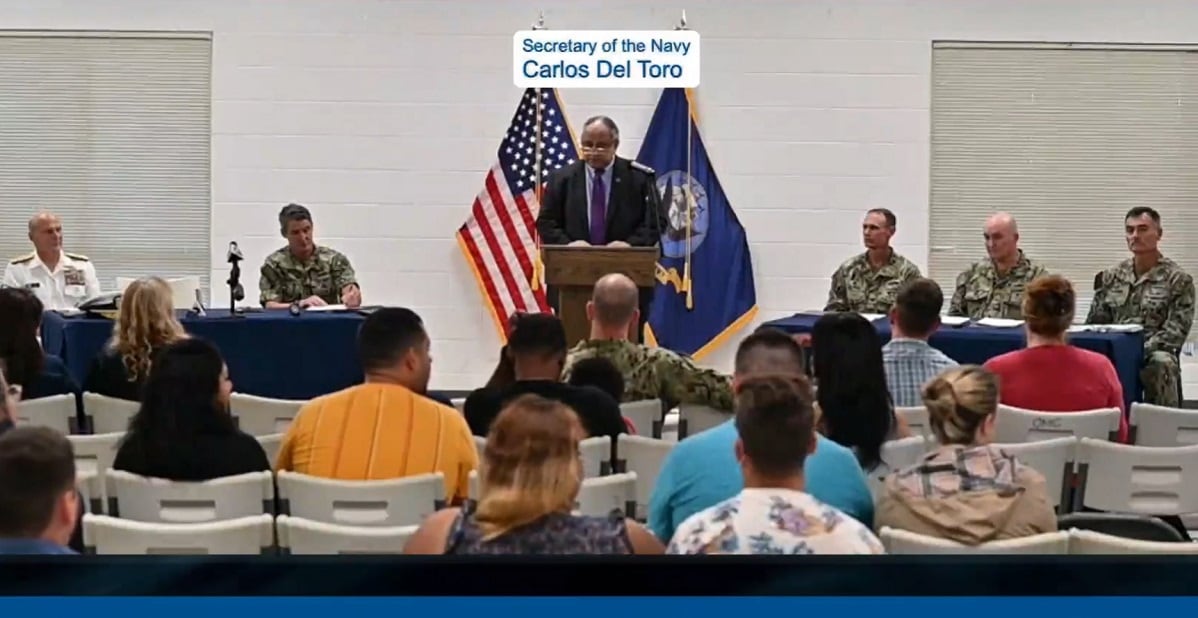This article was updated to include information about grants from Coast Guard Mutual Assistance.
The military relief societies have given grants of more than $1 million over the past week to service members and their families in Hawaii who have been paying out of pocket expenses related to the fuel contamination in the Navy water system at Joint Base Pearl Harbor-Hickam.
- Navy-Marine Corps Relief Society has given 1,023 clients about $600,000 in grants, according to spokeswoman Gillian Gonzalez. The requests have been for needs such as lodging, food, cleaning supplies, water, gas and even child care, when their provider was affected by the contamination. Society officials anticipate there may be some assistance needed in the form of interest-free loans. For example, a service member waiting for Temporary Lodging Allowance to cover hotel expenses might need a short-term loan, which would be repaid when the allowance is paid to the service member.
- Army Emergency Relief has processed 616 claims, totaling $369,600 in grants, to soldiers and families affected by the water contamination, according to information provided to AER officials by the Schofield Barracks AER section. They’re providing a $600 grant to each affected soldier.
- Air Force Aid Society has provided 292 clients a total of $175,200, said spokeswoman Latoya Crowe. They are providing $600 in grant assistance per request, she said. At a town hall meeting Dec. 5, an Air Force wife said she’d heard of a family being turned down for assistance by Air Force Aid Society, but the relief society didn’t start offering the assistance until Dec. 3, Crowe said. The requests have been related to expenses for lodging, food and water.
- Coast Guard Mutual Assistance has provided 137 clients with grants totaling $82,200, said Erica Chapman, education services specialist for the organization. They’re providing $600 in grant assistance per household. It’s being coordinated through the Gold Badge Master Chief network, and members don’t need to apply individually with their CGMA representative. Most members receive funds the same day, through electronic transfer. CGMA expects to provide this financial assistance to at least 200 affected Coast Guard families. Those with additional financial needs can contact their local CGMA representative, Chapman said.
RELATED

On Nov. 28, a number of military families reported to officials at Joint Base Pearl Harbor-Hickam that they were smelling a fuel odor in their water. Many families have said they and their children had been experiencing symptoms in the days prior, including rashes, diarrhea, vomiting, headaches and other problems. After the fuel odors began, families began spending money for drinking water, takeout food and other needs. Some families decided on their own to move to hotels. A few days later, the military began providing potable water.
The Armed Forces Housing Advocates organization also provided water for residents early on, and was arranging for off-base showering facilities for the families before the military brought some of those facilities into the communities.
By Dec. 2, the Army was offering contracted hotel rooms to residents in the Aliamanu Military Reservation housing area, which is served by the Navy water system. The Navy followed suit with a mix of contracted hotel rooms and lodging allowance. More than 1,400 residences in 11 housing areas were affected by the tainted water, according to the Navy. Officials have set up centers to provide individual assistance to affected families, including information about contacting their military relief society for help.
Navy officials confirmed Dec. 3 that a water sample from their Red Hill well came back with a positive result for petroleum contamination. After initial tests on the island didn’t show contamination, the Navy flew samples to the U.S. mainland for more sophisticated analysis.
Karen has covered military families, quality of life and consumer issues for Military Times for more than 30 years, and is co-author of a chapter on media coverage of military families in the book "A Battle Plan for Supporting Military Families." She previously worked for newspapers in Guam, Norfolk, Jacksonville, Fla., and Athens, Ga.










